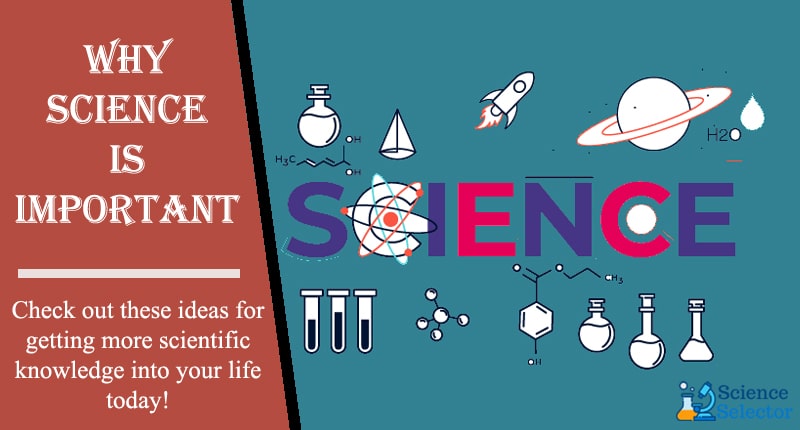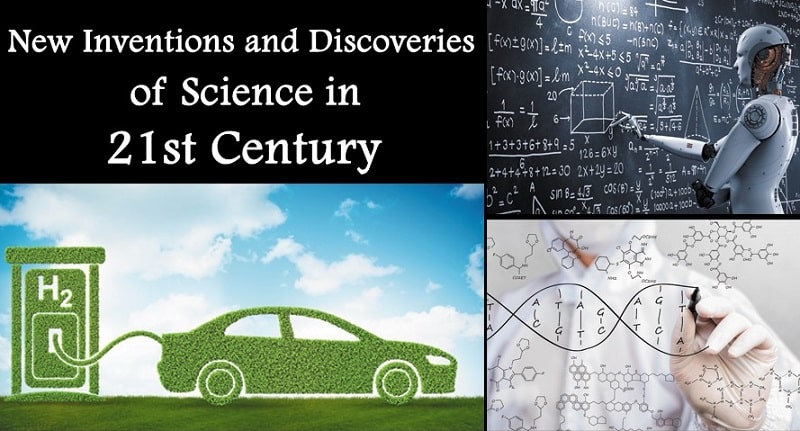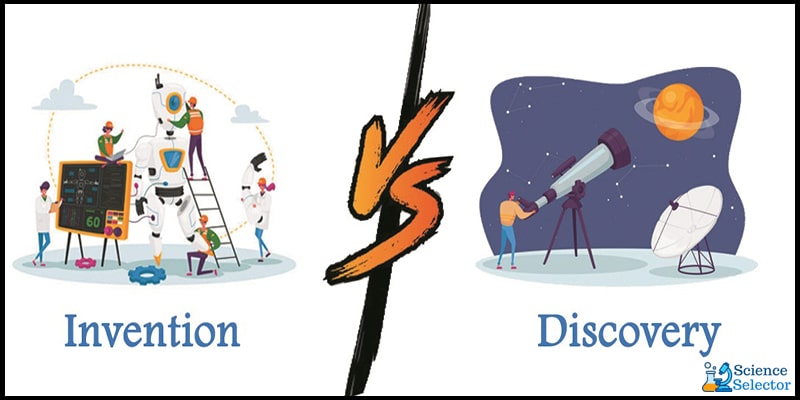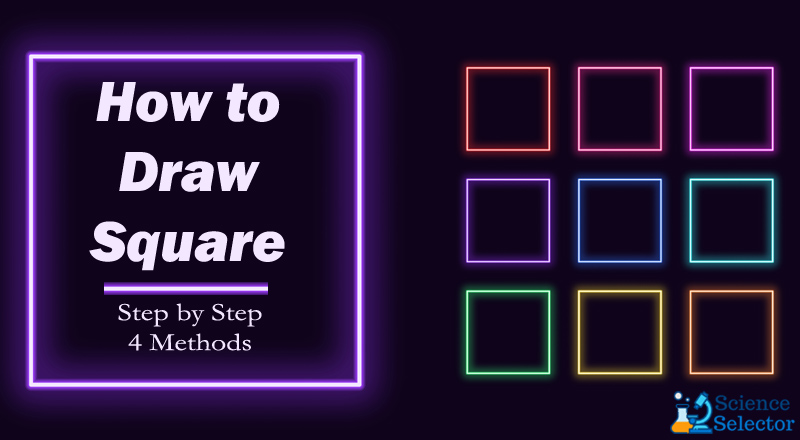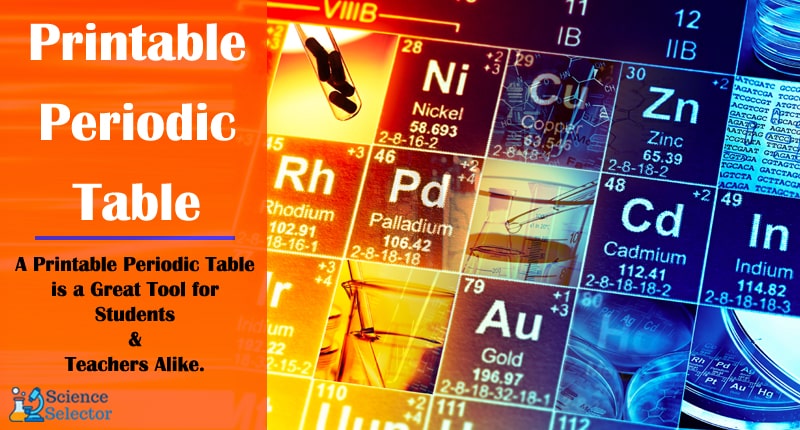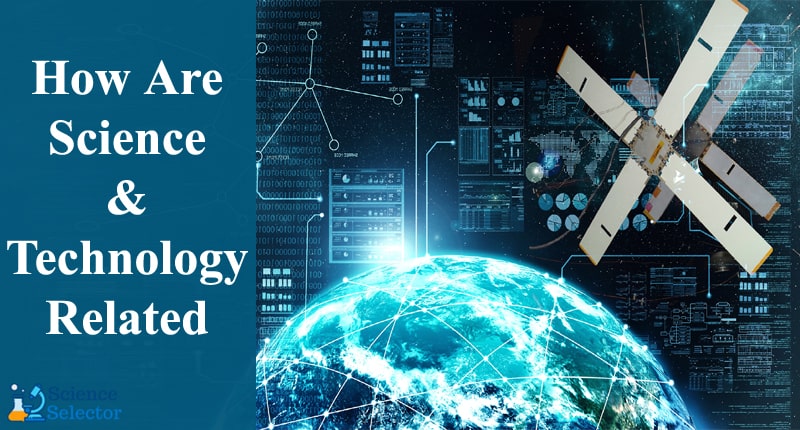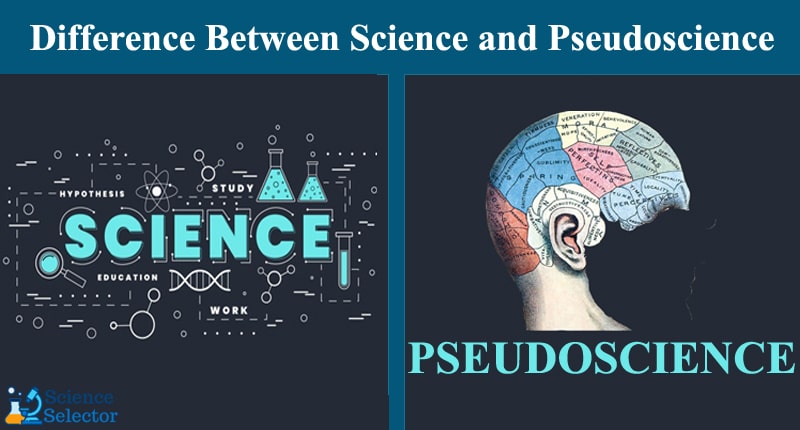Do you know why we love science? Because it is essential for our life! Read on and find out why Science is important.
Check out your phone or computer for a while. Can you see the gleam of the sparkle? What happens when you turn it on?
Science created that. It was achieved by channeling electricity by scientists
Does your computer have internet access? How does it connect you to the rest of the world?
Another result of science.
Look at your body…
Made by science….
It’s saved us from disease, from negative ideas, and most significantly, from false hope.
Prior to science, life was brutal, nasty, and short for a human being. All this changed due to science and education.
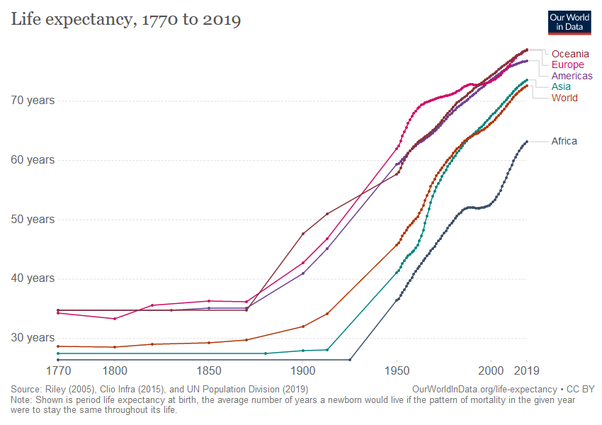
You can ignore science, but you will never escape it. The great part about science is that it allows us not to believe in anything until it is proven.
Science is a big word with many meanings. Science is the study of everything in our world and beyond. Science is not just about answering questions, it is about satisfying our curiosity. It’s what we use to explore our planet, understand how other animals live, and even help us better understand ourselves. It is the way to communicate, transmit, elaborate, and understand the things around us. With experiments, it helps you discover why things happen, how it happens. In an easy and simple manner, it explains things to us.
In this post, We’ll talk about what is important of science in your life. So whether you’re interested in living things like plants and animals or exploring the Earth around you, check out these ideas for getting more scientific knowledge.
The Importance of Science
““Science is important in everyday life. If there is no science, there is no life or vice versa.”
1. Importance of Science in Our Daily Life
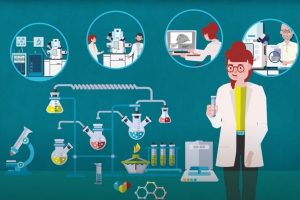
We all benefit from the inventions and discoveries of science. Traveling has become much more enjoyable with the help of technology & the invention of modern vehicles. Because of airplanes, we can now fly like birds. A quick trip around the world isn’t that difficult nowadays. The globe is now like a family thanks to the internet.
Almost every aspect of our lives is directly affected by science, including food, energy, medicine, transportation, recreation, etc. Science makes life more comfortable at every level, from the individual to the global.
So, so far, everything in your house is made by science including your clothes, wooden furniture, phone, and computer.
It’s almost as if you couldn’t listen to music without an mp3 player, an ipod…or an iPhone which are also science products.
We cannot live without science. Some everyday uses of science include –
- From cars to bicycles and ship to airplanes, all transportations system were invented by science.
- In addition to soap, science also provides us with cleaning products.
- Science has given us cookware, LPG gas, stoves, gas, etc.
- Even our homes are products (various building materials are used) of science.
- We use iron to ironing clothes which is invented by science, and we also wear clothes made by science.
- A clock alarm wakes you up at your preferred time.
- Now you don’t have to heat water over the fire to take a hot shower or bath.
- The lights make it easy to see indoors, and no toxic fumes come from burning oil.
- If your writer can easily write with a pen or a pencil, then you don’t have to chisel everything into stone.
- With just a few buttons, we can communicate with anyone around the globe.
- You can get fruits and foods that aren’t native or made to your country through a transportation system.
2. Science Made it Possible to Develops and Implements New Technologies

Are you thinking of using a regular landline phone instead of your cell phone? These technological advancements would not be possible without science, much less the minicomputer sitting next to you that we know as a phone.
We are approaching the twenty-first century and are seeing several new and more powerful technologies enter our homes and offices. A mobile phone and the Internet facilitate faster communication. Throughout the years, the development of technology has been so rapid that the results have been quite impressive.
Science and technology make our lives easier. A high-tech machine or equipment makes work easier. We can do our jobs faster because of technology. It makes living easy and comfortable for us. In addition, it aids us in organizing our daily routine.
It seems like there’s no shortage of places science is going today: from self-driving cars to rovers on Mars, to cancer zappers on a nanoscale, foldable prosthetic limbs, light-controlled brains, as well as quantum calculations.
Science can provide vast benefits if we apply it. However, that requires us actually to apply it.
The advantages of science and technology are:
- With all the advanced technology, we can now organize our day-to-day activities easily.
- Using new inventions, we can accomplish more work faster.
- Devices make communication easier.
- We learn more about other cultures and societies.
- Using modern vehicles we can now travel easily and quickly.
- The advancement of technology has led to a higher standard of living.
- Through science and technology, complex tasks and work have become simpler and easier for humans.
- As science and technology have grown, many impossible has become possible.
3. Importance of Science in Medical Sector
Most modern medicines that we have are the result of scientific discoveries or inventions. As one of the first discoveries, Sir Alexander Fleming discovered Penicillin in his laboratory in London in 1928.
As a consequence of COVID-19, there have already been more than 208 million cases documented and 5 million deaths. Though we are far from having ended this pandemic, we have now deployed the most rapid and vast number of vaccines to eradicate it. The rapid creation of the COVID-19 vaccines is a great invention of science.
Clinicians are making tremendous advances with adult and embryonic stem cells. Scientists in Japan developed a method in 2009 for regrowing rodent teeth using adult stem cells.
The American Heart Association vowed to reduce the death rate from coronary vascular disease by 25% by the year 1999. A significant decrease (40%) in the number of heart-related deaths has been observed in the past decade, particularly in the area of treatment for unstable angina (heart attacks).
4. Importance of Science in Society
Science generates solutions for everyday life and helps us to answer the great mysteries of the universe. In other words, science is one of the most important channels of knowledge. It has a specific role, as well as a variety of functions for the benefit of our society: creating new knowledge, improving education, and increasing the quality of our lives.
As our society becomes increasingly fragmented and digital, so will the role of science and its significance for our political and social system.
In times of uncertainty, science has both a major role in society and great responsibility.
Reasons why we need social science
- Social science helps us think about future development
- It helps us understand our finances.
- Researchers in social science contribute to our wellbeing.
- It’s possible to make your neighborhood more secure with social science.
- The social sciences can improve the education and lives of our children.
- The social sciences can be used to better the world.
- With social science, you can expand your horizons.
- Social science is necessary to protect democracy.
5. Gain Fundamental Knowledge
The rewards of science aren’t always immediate. Science discovers fundamental knowledge in some cases. The purpose of this is to understand how the universe functions. It gives us the answer on molecules are made, not just how they interact. This type of knowledge is vital because it tells us what makes protons and neutrons. In this way, we can test the validity of gravity theories. We can understand how radiation works through our bodies.
It is often true that science gives us fundamental knowledge that cannot be applied right away.
This fundamental knowledge takes decades to put into practice, if not centuries. We need the knowledge to create applications, but when we have the knowledge, it’s hard to imagine life without it. It would be impossible for medical professionals to diagnose broken bones via x-rays and offer accurate treatment for the injured without the use of x-rays.
6. Help Taking Life Decision
Science is important because we use it in our everyday lives in various ways, such as food, energy, medicine, transportation, and leisure activities. At every level, science improves the quality of life for humans.
In addition, science can comfort its adherents and influence their behavior. Modern genetic analysis showed, for instance, how closely humans are related.
The study of science allows us to discover the laws everything must comply with. In every decision I make, I ask myself why I make the decisions I make, why I think the way I think. I am not able to change my actual behaviors with this type of theory or solve my problems in studying and working.
I try to understand why I do something by trying to identify the factors that influence me. In this way, I’d like to forecast what I will do and what the mission of my life is. Although the theory of the soul can suggest my behavior was influenced by my soul, it cannot answer what I intend to do in the future.
Science can help me in this process because it shows how to judge whether a theory is worth following, so I try to find a new theory. When I’m tired, biology says I should rest. However, neuroscience says I should ask myself whether I enjoy what I’m doing and whether my financial situation is causing the exhaustion.
7. Brings New Ideas
If they stopped working on it, your living room would look something like this. Good enough is never enough in science. One computer can interface with millions of people, and therefore your living room is grateful for that.
With the development of computers and the ability to train them to communicate with each other, the framework for a network that formed the internet was introduced to the world.
Science has developed so much that now you can even find the internet in space thanks to the development of the internet.
8. A platform for Sharing Ideas
Our lives and use of science are subject to peer review before using or incorporating it into our daily lives.
They review the papers, look at the experiments, investigate the results, and conduct rigorous technical checks.
In this way, experiments can be evaluated for weaknesses while collaboration is enabled.
Scientists work in teams to accomplish their goals. Many experiments and a large number of scientists go into discovering so that it can be replicated, confirmed, or denied.
The weak links in a scientific argument are replaced with ideas of greater strength by all individuals participating in the scientific community. So, computer programmers join forces with chemists and mathematicians through this process.
Because science transcends language barriers and borders, it is essential for bringing people together. By using it, we can communicate ideas in public forums and confirm a consensus or dissect disagreements.
9. Enhances our Worldview
Our perception of the world used to be that it was flat. What if the world was flat? Where would you go? On a flat earth, how would one describe the movement of landmasses?
Our understanding of the world is aided by science.
It helps us comprehend, and interact with, the world around us by helping us understand gravity, the spherical shape of the Earth, and climate change.
As we understand even the basic laws of physics, we gain more insight into how we can better solve problems in our world as we realize that even the basic laws are far more complicated than we ever imagined.
We can live by the laws of science. All the phenomena we see every day can be explained by a set of laws. Science tries day and night to get to the bottom of it when it can’t.
Benefits of Learning Science
Fundamentally, science is not the subject, it is the attitude of observing things, questioning them until and unless we come to a satisfactory conclusion.
When it comes to middle school and high school subjects, science ranks ahead. In the educational conversation, it is at the forefront, just as mathematics and history are.
There are many reasons science can be a daunting experience at any level, including the amount of material covered and the feeling of being overburdened.
Is its popularity or importance diminished by its complexity?
The reason science is important is obvious! We learn how our universe and lives work through science.
Educators are often focused on teaching science. Memorizing formulas, theories, and vocabulary is not enough to be a scientist. Communication is the most important aspect of science, and it is about pursuing knowledge across all areas.
Here are the main benefits of Science:
- Increase Confidence– When students succeed in difficult subjects in middle school and high school, they often feel a sense of accomplishment. Living a successful life requires resilience. You will be confident for the rest of your life.
- Learning New Theories– In addition to continuously testing their own theories, students learn to do more research to validate their theories. No matter how good or how bad they are at science, kids love learning.
- Discoovering New things– The science problem-solving skills kids gain are essential for becoming superheroes! In addition, they see the results of their efforts and exertions firsthand as they make important discoveries.
- Success– In science, we ask specific questions about the world’s biggest issues. Many children are curious and wonder about the world around them. Science instills a sense of awe among school students and helps create the optimal conditions for later success in the workforce.
- Forming Hypothesis– The Scientific Method also teaches forming a hypothesis, testing it with experiments, and applying that information to gain knowledge. You will develop later in life scientific rigor if you are a better student of science.
- Improves Credibility– Acquiring scientific knowledge improves one’s credibility. In a world governed by statistics, children who become savvy consumers as they get older are much more likely to be science-oriented children.
- Improve health– There is no doubt that the scientific method is prevalent in the real world, as well. To improve the health of children, they must study science.
Disadvantages of Science
As much as science and technology offer us a lot of positive things, they also come with a lot of drawbacks that deeply affect human life.
Modern living destroys our culture and society by replacing the traditional way of living. In other words, if we manipulate technology, then technology also manipulates us. The world is run by advanced machines and equipment. People thought that these inventions were going to have a positive effect, but instead, they have changed our lives so much that we forget about what it was like when our ancestors lived. Technology and science enable us to finish work with no effort. It has a negative impact on us.
- The first is: Irresponsible people can easily deal with it.
- If we rely on that, we’ll become dependent on it too much. In the absence of technology, we are helpless (in some sense).
- It can affect our health and our lifestyles. (We eventually become complacent and lazy.)
- Chemicals are dangerous
- It destroys our traditional lifestyle (habits I miss).
- Our privacy has been invaded.
Despite science’s many benefits, it can also be used for evil purposes. It is up to you how you use it.
Conclusion
Science is important because it helps us understand the world around us. Science does this by studying how our brains work and what happens when we see or experience something new, like a product for sale online.
It’s also why we teach our children about scientific principles in school; with an understanding of these principles, you can make more informed decisions and be less susceptible to common brain biases. Thanks to science, our quality of life is much better, and we have more material wealth and freedoms than anyone in the past could have imagined. We hope you found why science is important in this article.
-
Science refers to the knowledge one gains by systematically studying both the physical and natural…
-
The world is full of new ideas and knowledge that can always be explored, no…
-
Despite the decadent sentiments, inventions and discoveries of science in the 21st century did not…
-
We live a very busy life, and discoveries and inventions play a pivotal role in…
-
Squares have four congruent sides and four right angles. They must be easy to draw,…
-
One of the most useful tools in chemistry is a periodic table, which organizes all…
-
How are science and technology related? It's a question that is difficult to answer. Sure,…
-
The difference between science and pseudoscience is that one is based on rigorous testing, while…

